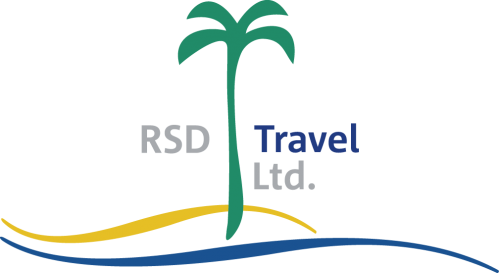Information about Nepal
Comparison of temperatures
| Jan | Feb | Mar | Apr | May | Jun | Jul | Aug | Sep | Oct | Nov | Dec |
| Kathmandu | 18 | 21 | 25 | 28 | 31 | 31 | 28 | 29 | 29 | 26 | 22 | 20 |
| London | 8 | 8 | 11 | 15 | 18 | 20 | 22 | 22 | 19 | 17 | 12 | 8 |
General note:
Below is an information overview. The conditions of entry, as well as the political and health situation, can change anywhere in the world at any time. We therefore recommend checking the website of the Foreign Office (www.gov.uk) before your departure.
Geography:
Nepal is a land-locked state in South Asia, bordered to the north by China and to the East, South and West by India.
Form of government:
Parliamentary democracy
Capital:
Kathmandu
Religion:
Approx. 80% Hindus, 9% Buddhists, 4% Muslims, 1.4% Christians
Language:
Nepalese is the official national language; there are also around 50 minority languages or dialects spoken; English is understood and spoken almost everywhere.
Climate:
Monsoon climate, more temperate in the north thanks to the elevation. Winters are moderate, high rainfall in the summer (monsoon period June to October)
Electricity:
220 V, 50 Hz; an adapter is recommended.
Local time:
Nepal has no summer / winter clock changes. The time difference from England is +4.45 hours in summer and +5.45 hours in winter.
Making telephone calls:
The dialling code for long-distance calls from the UK to Nepal is 00977. Dial 0044 and drop the 0 from the local code when calling the UK from Nepal.
Entry requirements for British citizens:
To avoid problems at immigration, make sure your full ‘British citizen’ passport has an ‘expiry date’ at least 6 months after your date of entry into Nepal. You will be denied entry if you do not have a valid travel document or try to use a passport that has been reported lost or stolen. At border control, you may need to show:
- A travel insurance document which has cover for healthcare costs including
- Repatriation and other emergencies while you are in Nepal.
- A confirmation of where you will spend your first night, for example, a hotel booking
You must have a visa to visit Nepal for up to 90 days. You can apply for a tourist visa in advance and collect it from the Nepal Embassy in the UK or in another country (https://nepaliport.immigration.gov.np/onlinevisa-mission/application). Applying in advance can reduce the time it takes to pass through immigration. You can apply online for a visa on arrival up to 15 days in advance of your arrival. Using your submission receipt, you then collect and pay for your visa at the airport. You can also apply using the forms or terminals available at the airport, then queue up to get the visa. You can pay by card, but you should have cash as a back-up, with USD being the preferred currency. To apply for the visa, your passport must have two blank pages.
Visas are available for several lengths of stay at various costs. A single-entry visa valid for 15 days (30 USD), 30 days (50 USD) or 90 days (125 USD). You must have a valid visa in your passport to leave Nepal. If your visa has expired you will have to arrange an extension at the Department of Immigration, before your departure. Overstaying your visa in Nepal is a serious crime, and can lead to significant fines or imprisonment.
Nationals of other countries are advised to enquire about the applicable entry requirements at the Embassy of Nepal about the entry requirements applicable to them (https://uk.nepalembassy.gov.np/). Whilst we endeavour to provide guidance where necessary, we can not be responsible for any problems encountered (whether at any point of entry or elsewhere) in the event that passport and visa requirements are not satisfied. For more information, please visit https://www.gov.uk/foreign-travel-advice/.
Tour guide:
Your expert tour guide will be able to provide you with detailed information about the country, people, history, culture, etc., and offer advice and assistance for organizing your trip. They can also help with room allocation and look forward to welcoming you with initial information. Here you will find out all you need to know and useful information about the trip. We have put together a varied programme including numerous highlights, enabling you to experience the culture and diversity of landscape that Nepal has to offer, and learn all about the country and its people.
Additional package:
Although your trip already includes a comprehensive package, you also have the option of choosing added extras. We recommend booking the following packages:
Gourmet package: The package includes half-board with delicious dinners, including 5x dinner in the hotel, 1× traditional Nepalese dinner with a folklore show and 1× dinner with an Everest sherpa in Kathmandu: only £179 per person
Explorer package: The package includes the ‘Elephant safari in Chitwan National Park‘ as well as admission to the International Mountain Museum in Pokhara and the all-day excursion ‘Kathmandu, Swayambhunath & Patan (World Heritage)‘: only £159 per person
Currency:
The currency unit is the Nepalese Rupee (NPR). 1 Rupee = 100 Paisa. Exchange rate (March 2025): 1 GBP = 177.94 NPR; 100 NPR = 0.005 GBP.
Bank / Credit Cards:
In the Kathmandu Valley cash can be withdrawn from ATMs. Most ATMs accept Visa and Mastercard credit cards. EC cards are rarely accepted. The bank will charge a foreign transaction fee for each withdrawal. In high-end hotels, restaurants or businesses, but mainly in Nepal’s major cities, credit cards are accepted as a means of payment. For each cashless payment with a credit card, your home credit card company will charge a fee for using the card abroad. On trips to less densely populated regions especially, we recommend taking USD in cash. Foreign currency can be exchanged in all major cities.
Customs regulations:
You must declare on a customs form on arrival any amount above the value of 5,000 USD (approx. 3,853 GBP) in banknotes or 10,000 USD (approx. 7,706 GBP) in notes and travellers cheques combined. Customs will give a certified declaration, which you must keep. You will need to convert all your Nepali currency before you leave Nepal, and the bank or exchange counter at the airport may ask you for the declaration. The import and use of drones (UAV – Unmanned Aerial Vehicle) requires obtaining numerous permits in advance.
Bringing precious metals into Nepal is strictly regulated. You can carry gold ornaments up to 50 grams and silver ornaments up to 100 grams. If you bring in undeclared gold or silver, you may:
– Get a fine equivalent to the value of the goods
– Go to prison for between one month and 5 years depending upon the value of the goods have the goods confiscated be detained during the proceedings.
Products manufactured in Nepal (except those banned from export) may be exported without a permit up to the amount in foreign currency exchanged by the tourist at a bank or government-authorised exchange office.
More extensive customs information about importing goods can be obtained from the embassy of the country you wish to enter. Only the embassy can provide you with legally binding information.
Important: If you are travelling to Great Britain from outside the UK, your personal allowances mean you can bring in a certain amount of goods without paying tax or duty. If you go over your allowances you must declare all your goods and pay tax and duty on all the goods in that category. Please inform yourself about the current customs regulations: www.gov.uk/bringing-goods-intouk-personal-use/arriving-in-Great-Britain.
Country-specific safety advice:
Bandhs/strikes: In Nepal, there are occasional ‘bandhs‘ (forced strikes with blockades or roadblocks), localised violence and closed shops (also in the Kathmandu Valley), which are sometimes enforced by force. These can severely disrupt public life and lead to enormous obstructions in travel.
Crime: Especially in tourist areas, petty crime such as pickpocketing, but also burglaries can occur.
Natural disasters: Nepal lies in an area of seismic activity and the Himalayas region especially is at high risk of earthquakes. In the event of a severe earthquake, it must be assumed that medical facilities and general emergency services will be overloaded. During the monsoon period, which lasts in Nepal from June to the start of October, sudden and often prolonged bad weather can cause repeated flooding, torrents and mudslides that can even affect and restrict main transport routes. Travellers should follow the bad weather warnings issued by the Department of Hydrology and Meteorology and take particular care, especially on mountain slopes and near rivers.
Special criminal provisions:
The Nepalese police and judiciary prosecute drug offences harshly. Long prison sentences are to be expected for breaking the law. The export of large sums of money not declared on arrival can also incur significant financial penalties or imprisonment.
Sexual acts with minors are also prohibited and will be punished with a severe fine as well as with imprisonment. The Nepalese Electronic Transactions Act punishes articles in social and electronic media that disrupt social harmony in Nepal or defame individuals. Foreigners may be punished with deportation and/or prison sentences.
Medical information:
At least 8 weeks before your trip, check the latest country-specific health advice from the National Travel Health Network and Centre (NaTHNaC) on the TravelHealthPro website (https://travelhealthpro.org.uk/country/159/nepal).
Each country-specific page has information on vaccine recommendations, any current health risks or outbreaks, and factsheets with information on staying healthy abroad. Vaccinations against Hepatitis A, Tetanus and Typhoid, in case of long-term stay also against dengue fever, hepatitis B, rabies and Japanese encephalitis are recommended.
Diarrhoea and gastrointestinal problems: Diarrhoeal illnesses are common all year round throughout the country. Tap water is not always safe to drink, even in cities. We recommend only consuming bottled or canned drinks, or filtering, chemically disinfecting or boiling water before drinking it. Only treated drinking water should be used for washing fruit or vegetables or for brushing your teeth. Do not consume raw, uncooked or un-peeled products. Meat must have been cooked very well before being eaten. There is a risk of infection from salmonella, shigella and typhoid bacteria, amoeba, lamblia and tapeworms all over the country. General hygiene measures such as regular hand-washing or hand disinfection after using the toilet and before eating, and keeping flies off food, can reduce the risk of infection.
Infectious diseases: In order to prevent infectious diseases such as Japanese encephalitis (JE), malaria and dengue fever, it is particularly important to protect yourself carefully against mosquitoes. against mosquitoes. Follow the recommendations below:
- Wear long, light clothing impregnated against insects when outdoors
- Consistently treat all areas of the skin with a suitable repellent
- Use impregnated mosquito nets during the night or stay in mosquito-proofed rooms (fly screens, air-conditioning systems)
Medical care:
Medical care in large parts of the country is inadequate and often does not meet European standards. Adequate basic care is available in Kathmandu and popular tourist destinations, as well as along major trekking routes. In Kathmandu, medical care in certain specialisms is also of a very high standard. For serious illnesses, medical evacuation may therefore need to be considered, for example to Kathmandu or further on, to India. Advice from a doctor experienced in travel medicine is strongly recommended an appropriate time before you intend to travel. People with chronic conditions or those needing treatment in particular should be aware of the risks to health of travelling to Nepal. The supply of reliable medications and an uninterrupted cool chain are not always guaranteed. It must be anticipated that, especially in small pharmacies, fake products may be sold instead of proper medications. Travellers should bring sufficient quantities of medications that they take regularly with them to Nepal, and bring a letter from their doctor in English to show at immigration stating that they are needed.
It is strongly advisable to have adequate and valid health insurance coverage including provision for repatriation.
Customers must ensure that they are physically and mentally well enough to undertake their chosen trip. They should find out for themselves the physical mobility levels and mental capacity required for this trip.
All information is subject to change / Last updated: March 2025
back Information & tips
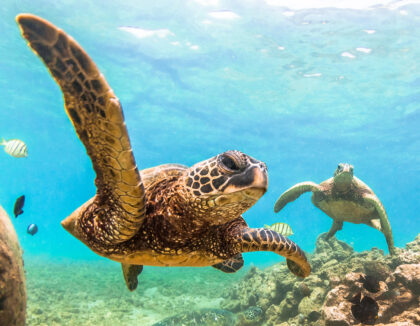 Travel highlights
Travel highlights
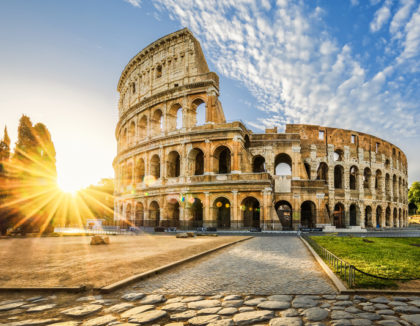 Europe
Europe
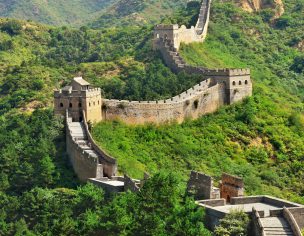 Asia
Asia
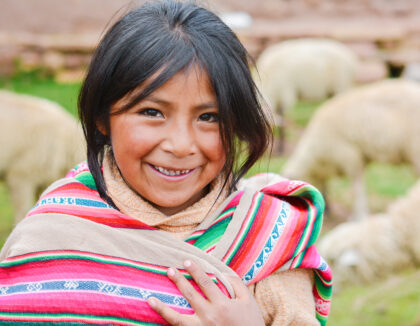 America
America
 Africa
Africa
